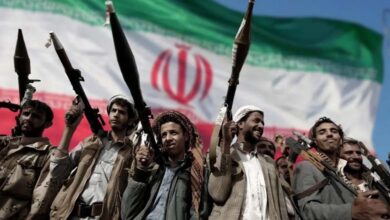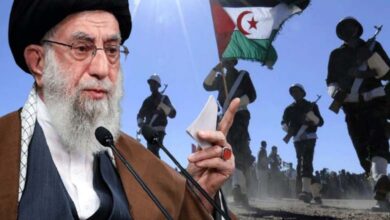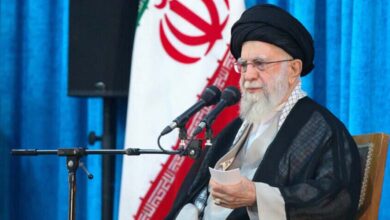The UAE and 8 Arab States confirm rejection of the Palestinian issue settlement and displacement

The foreign ministers of the United Arab Emirates and eight Arab countries have affirmed their rejection of any attempts to settle the Palestinian issue at the expense of the Palestinian people and the peoples of the region, or to displace the Palestinian people from their land, considering it a serious violation of international humanitarian law and a war crime.
This came in a statement issued by the foreign ministers of Jordan, the UAE, Bahrain, Saudi Arabia, Oman, Qatar, Kuwait, Egypt, and Morocco following the “Cairo Summit for Peace” held in Cairo on October 21st, in light of the ongoing escalation that began on Saturday, October 7th, in Israel and the occupied Palestinian territory, especially in the Gaza Strip, and the continued loss of innocent civilian lives and blatant violations of international law and international humanitarian law.
The foreign ministers emphasized their condemnation and rejection of the targeting of civilians, all acts of violence and terrorism against them, and all violations and infringements of international law, including international humanitarian law and international human rights law by any party, including the targeting of infrastructure and civilian facilities.
They affirmed their rejection of individual or collective forced displacement, as well as the policy of collective punishment, and stressed the need to ensure full respect for the 1949 Geneva Conventions, including the responsibilities of the occupying power. They also emphasized the importance of the immediate release of hostages and civilian detainees and the provision of safe, dignified, and humane treatment in accordance with international law, while highlighting the role of the International Committee of the Red Cross in this regard.
They stressed that the right to self-defense guaranteed by the United Nations Charter does not justify gross violations of international law and international humanitarian law or the deliberate neglect of the legitimate rights of the Palestinian people, including the right to self-determination and ending the decades-long occupation.
They called on the Security Council to compel the parties to an immediate and sustainable ceasefire, emphasizing that the failure to characterize gross violations of international humanitarian law constitutes a green light for the continuation of these practices and complicity in their commission.
They also called for ensuring and facilitating rapid, safe, and sustainable access of humanitarian aid to the Gaza Strip without obstacles in accordance with relevant humanitarian principles and for mobilizing additional resources in cooperation with the United Nations and its affiliated organizations, especially UNRWA.
They expressed concern about the potential for the current confrontations to expand and the conflict to spread to other areas in the Middle East, calling on all parties to exercise the utmost restraint, while emphasizing that the expansion of this conflict will have serious consequences for the peoples of the region and for international peace and security.
They also expressed deep concern about the escalating violence in the West Bank, calling on the international community to support and enhance the Palestinian national authority and provide financial support to the Palestinian people, including through Palestinian institutions, as it is of utmost importance.
They emphasized that the absence of a political solution to the Palestinian-Israeli conflict has led to the repetition of violence and suffering for both the Palestinian and Israeli peoples and the peoples of the region, stressing the importance of the international community, especially the Security Council, fulfilling its responsibilities to seek peace in the Middle East, and making quick and genuine collective efforts to resolve the conflict and implement the two-state solution based on relevant United Nations resolutions, ensuring the establishment of an independent and sovereign Palestinian state with contiguous territories and a viable existence along the pre-June 4, 1967 lines, with East Jerusalem as its capital.












